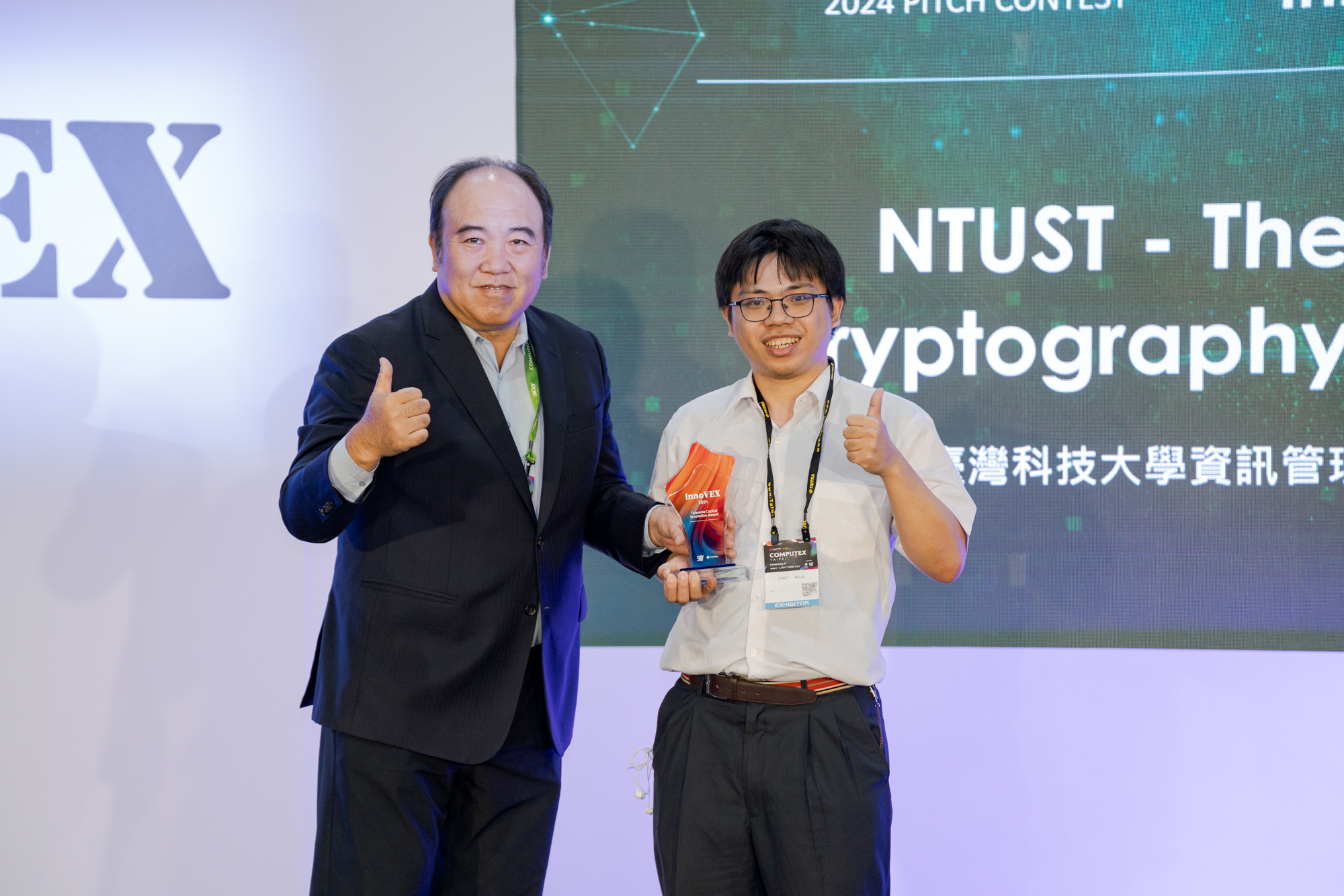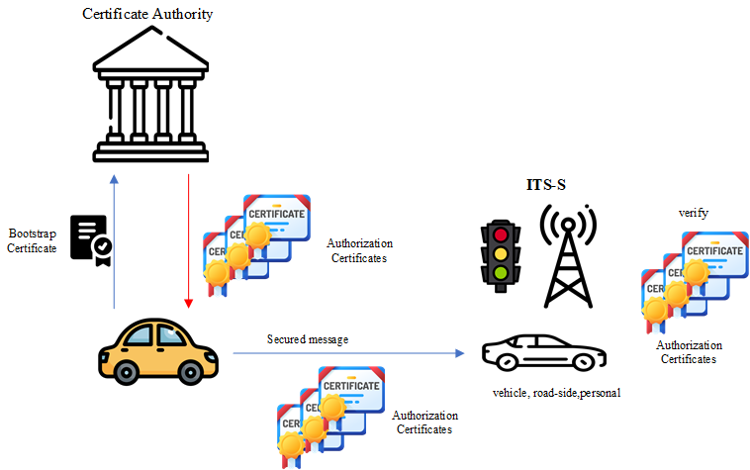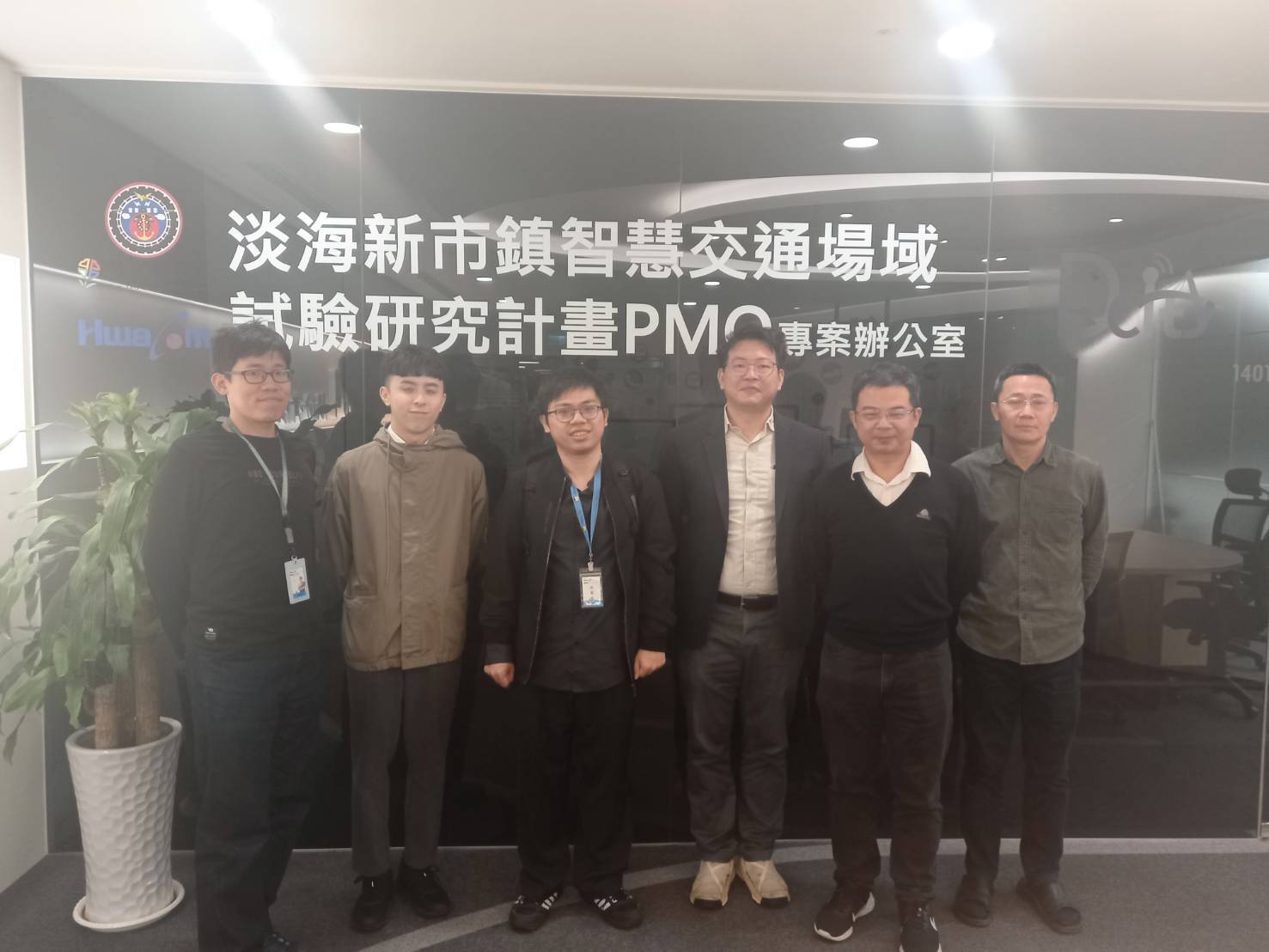Taiwan Tech's Vehicle Password Encryption and Verification System wins InnoVEX Innovation Award.
Professor Jheng-Jia Huang from the Department of Information Management at Taiwan Tech, leading the Applied Cryptography Laboratory team, developed a “Vehicle Password Encryption and Verification System” to address vehicle verification challenges in high-speed traffic environments. The team stood out among hundreds of international competitors at this year's InnoVEX Pitch Contest and won the Taiwania Capital Innovation Award.

Professor Jheng-Jia Huang’s lab team from the Department of Information Management at Taiwan Tech participated in the InnoVEX 2024 startup competition and won the Taiwania Capital Innovation Award. Pictured on the right is team member Wen-Yen Dai, a Ph.D. candidate at the Department of Information Management.
In modern complex traffic environments, credential verification is crucial for ensuring the security of vehicular network systems. By exchanging information between vehicles and roadside equipment like traffic lights and streetlights, drivers can know the distance to nearby vehicles, helping to prevent accidents and reduce congestion. Professor Jheng-Jia Huang's team developed a “Vehicle Password Encryption and Verification System”, a batch verification technology designed for vehicular network environments. This system can simultaneously handle verification requests from multiple vehicles in a short time, addressing traffic congestion and reducing computational costs.
Wen-Yen Dai, a Ph.D. candidate, and lab member, explained that current international vehicular network credential systems verify each vehicle individually to ensure the privacy of data transmission. However, this method can lead to packet loss and network congestion under high traffic or speed conditions. To address these limitations, the team introduced “batch verification technology”, allowing multiple vehicles to be verified simultaneously by roadside equipment such as traffic lights. Compared to existing international verification techniques, this solution enhances accuracy and speed while lowering the computational costs for traffic infrastructure.

Professor Jheng-Jia Huang's team developed batch verification technology for vehicular network credentials, effectively addressing vehicle congestion in complex traffic environments.
However, the team faced numerous challenges during development. Wen-Yen Dai explained that due to the limited availability of programming frameworks needed for their specific functions, many had to be developed and written by oneself when implementing the program. Additionally, they also found that there were not many relevant documents, much of which were hypothetical and difficult to validate against real-world applications.
To test their assumptions about packet loss and other issues, the team conducted field trials at the “Tamsui-Danshui Smart Traffic Test Field”, established by the Ministry of Transportation and Communications and managed by HwaCom Systems Inc. The tests confirmed vulnerabilities in existing international verification technologies, which led to the development and design of their batch verification technology.
The Applied Cryptography Laboratory focuses on security protocols and cryptography development. Professor Jheng-Jia Huang expressed gratitude to the Chinese Consulting Engineers for facilitating the team's participation in the Ministry of Transportation’s “Smart Connected Vehicle Security Credential Workshop Program”. The product showcased in the competition was a milestone result of this collaborative project. He also thanked HwaCom Systems Inc. for providing practical test environments that enabled crucial testing and research in vehicular network settings.
Professor Huang noted that their “batch verification technology” has already received a new patent, with an invention patent application submitted. In the future, the lab plans to publish this patent in international academic journals and submit it to international organizations to integrate it into global standards. They aim to leverage industry, government, and academic collaboration to provide innovative solutions for smart transportation and complete the puzzle of credential traffic safety.

Professor Jheng-Jia Huang's team, in collaboration with HwaCom Systems Inc., conducted real-world testing at the Tamsui-Danshui Smart Traffic Test Field.
